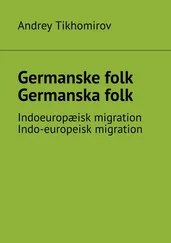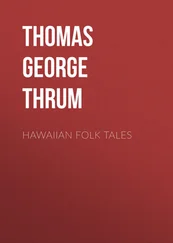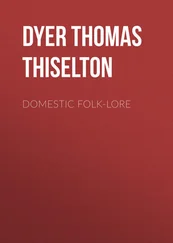Thomas Dyer - Folk-lore of Shakespeare
Здесь есть возможность читать онлайн «Thomas Dyer - Folk-lore of Shakespeare» — ознакомительный отрывок электронной книги совершенно бесплатно, а после прочтения отрывка купить полную версию. В некоторых случаях можно слушать аудио, скачать через торрент в формате fb2 и присутствует краткое содержание. Жанр: foreign_antique, foreign_prose, на английском языке. Описание произведения, (предисловие) а так же отзывы посетителей доступны на портале библиотеки ЛибКат.
- Название:Folk-lore of Shakespeare
- Автор:
- Жанр:
- Год:неизвестен
- ISBN:нет данных
- Рейтинг книги:4 / 5. Голосов: 1
-
Избранное:Добавить в избранное
- Отзывы:
-
Ваша оценка:
- 80
- 1
- 2
- 3
- 4
- 5
Folk-lore of Shakespeare: краткое содержание, описание и аннотация
Предлагаем к чтению аннотацию, описание, краткое содержание или предисловие (зависит от того, что написал сам автор книги «Folk-lore of Shakespeare»). Если вы не нашли необходимую информацию о книге — напишите в комментариях, мы постараемся отыскать её.
Folk-lore of Shakespeare — читать онлайн ознакомительный отрывок
Ниже представлен текст книги, разбитый по страницам. Система сохранения места последней прочитанной страницы, позволяет с удобством читать онлайн бесплатно книгу «Folk-lore of Shakespeare», без необходимости каждый раз заново искать на чём Вы остановились. Поставьте закладку, и сможете в любой момент перейти на страницу, на которой закончили чтение.
Интервал:
Закладка:
he alludes to the use that witches and enchanters were commonly supposed to make of withered branches in their charms. 70 70 See Jones’s “Credulities, Past and Present,” 1880, pp. 256-289.
Among other items of witch-lore mentioned by Shakespeare may be noticed the common belief in the intercourse between demons and witches, to which Prospero alludes in the “Tempest” (i. 2):
“Thou poisonous slave, got by the devil himself
Upon thy wicked dam, come forth!”
This notion is seriously refuted by Scot in his “Discovery of Witchcraft” (book iv.), where he shows it to be “flat knavery.”
The offspring of a witch was termed “Hag-seed,” and as such is spoken of by Prospero in the “Tempest” (i. 2).
Witches were also in the habit of saying their prayers backwards: a practice to which Hero refers in “Much Ado About Nothing” (iii. 1), where, speaking of Beatrice, she says:
“I never yet saw man,
How wise, how noble, young, how rarely featured,
But she would spell him backward.”
Familiar spirits 71 71 Allusions to this superstition occur in “Love’s Labour’s Lost” (i. 2), “love is a familiar;” in “1 Henry VI.” (iii. 2), “I think her old familiar is asleep;” and in “2 Henry VI.” (iv. 7), “he has a familiar under his tongue.”
attending on magicians and witches were always impatient of confinement. 72 72 See Scot’s “Discovery of Witchcraft,” 1584, p. 85.
So in the “Tempest” (i. 2) we find an illustration of this notion in the following dialogue:
“ Prospero. What is’t thou canst demand?
Ariel. My liberty.
Prospero. Before the time be out? No more.”
Lastly, the term “Aroint thee” (“Macbeth,” i. 3), used by the first witch, occurs again in “King Lear” (iii. 4), “Aroint thee, witch, aroint thee.” That aroint is equivalent to “away,” “begone,” seems to be agreed, though its etymology is uncertain. 73 73 Sec Dyce’s “Glossary,” pp. 18, 19.
“Rynt thee” is used by milkmaids in Cheshire to a cow, when she has been milked, to bid her get out of the way. Ray, in his “Collection of North Country Words” (1768, p. 52), gives “Rynt ye, by your leave, stand handsomely, as rynt you witch, quoth Bessie Locket to her mother. Proverb, Chesh.” Some connect it with the adverb “aroume,” meaning “abroad,” found in Chaucer’s “House of Fame” (book ii. stanza 32):
“That I a-roume was in the field.”
Other derivations are from the Latin averrunco : the Italian rogna , a cutaneous disease, etc.
How thoroughly Shakespeare was acquainted with the system of witchcraft is evident from the preceding pages, in which we have noticed his allusions to most of the prominent forms of this species of superstition. Many other items of witch-lore, however, are referred to by him, mention of which is made in succeeding chapters. 74 74 “Notes to Macbeth” (Clark and Wright), pp. 81, 82.
CHAPTER III
GHOSTS
Few subjects have, from time immemorial, possessed a wider interest than ghosts, and the superstitions associated with them in this and other countries form an extensive collection in folk-lore literature. In Shakespeare’s day, it would seem that the belief in ghosts was specially prevalent, and ghost tales were told by the firelight in nearly every household. The young, as Mr. Goadby, in his “England of Shakespeare,” says (1881, p. 196), “were thus touched by the prevailing superstitions in their most impressionable years. They looked for the incorporeal creatures of whom they had heard, and they were quick to invest any trick of moonbeam shadow with the attributes of the supernatural.” A description of one of these tale-tellings is given in the “Winter’s Tale” (ii. 1):
“ Her. What wisdom stirs amongst you? Come, sir, now
I am for you again: pray you, sit by us,
And tell’s a tale.
Mam. Merry or sad shall’t be?
Her. As merry as you will.
Mam. A sad tale’s best for winter:
I have one of sprites and goblins.
Her. Let’s have that, good sir.
Come on, sit down: Come on, and do your best
To fright me with your sprites: you’re powerful at it.
Mam. There was a man, —
Her. Nay, come, sit down; then on.
Mam. Dwelt by a churchyard: I will tell it softly;
Yond crickets shall not hear it.
Her. Come on, then,
And give’t me in mine ear.”
The important part which Shakespeare has assigned to the ghost in “Hamlet” has a special value, inasmuch as it illustrates many of the old beliefs current in his day respecting their history and habits. Thus, according to a popular notion, ghosts are generally supposed to assume the exact appearance by which they were usually known when in the material state, even to the smallest detail of their dress. So Horatio tells Hamlet how, when Marcellus and Bernardo were on their watch (i. 2),
“A figure like your father,
Arm’d at point, exactly, cap-a-pe,
Appears before them, and with solemn march
Goes slow and stately by them.”
Further on, when the ghost appears again, Hamlet addresses it thus:
“What may this mean,
That thou, dead corse, again, in complete steel,
Revisit’st thus the glimpses of the moon,
Making night hideous.”
In the graphic description of Banquo’s ghost in “Macbeth” (iii. 4), we have a further allusion to the same belief; one, indeed, which is retained at the present day with as much faith as in days of old.
Shakespeare has several allusions to the notion which prevailed in days gone by, of certain persons being able to exorcise or raise spirits. Thus, in “Cymbeline” (iv. 2), Guiderius says over Fidele’s grave:
“No exorciser harm thee.”
In “Julius Cæsar” (ii. 1), Ligarius says:
“Soul of Rome!
Brave son, derived from honourable loins!
Thou, like an exorcist, hast conjured up
My mortified spirit. Now bid me run,
And I will strive with things impossible;
Yea, get the better of them.”
In “All’s Well that Ends Well” (v. 3) the king says:
“Is there no exorcist
Beguiles the truer office of mine eyes?
Is’t real that I see?”
This superstition, it may be added, has of late years gained additional notoriety since the so-called spiritualism has attracted the attention and support of the credulous. As learning was considered necessary for an exorcist, the schoolmaster was often employed. Thus, in the “Comedy of Errors” (iv. 4), the schoolmaster Pinch is introduced in this capacity.
Within, indeed, the last fifty years the pedagogue was still a reputed conjurer. In “Hamlet” (i. 1), Marcellus, alluding to the ghost, says:
“Thou art a scholar; speak to it, Horatio.”
And in “Much Ado About Nothing” (ii. 1), Benedick says:
“I would to God some scholar would conjure her.”
For the same reason exorcisms were usually practised by the clergy in Latin; and so Toby, in the “Night Walker” of Beaumont and Fletcher (ii. 1), says:
“Let’s call the butler up, for he speaks Latin,
And that will daunt the devil.”
It was also necessary that spirits, when evoked, should be questioned quickly, as they were supposed to be impatient of being interrogated. Hence in “Macbeth” (iv. 1) the apparition says:
Читать дальшеИнтервал:
Закладка:
Похожие книги на «Folk-lore of Shakespeare»
Представляем Вашему вниманию похожие книги на «Folk-lore of Shakespeare» списком для выбора. Мы отобрали схожую по названию и смыслу литературу в надежде предоставить читателям больше вариантов отыскать новые, интересные, ещё непрочитанные произведения.
Обсуждение, отзывы о книге «Folk-lore of Shakespeare» и просто собственные мнения читателей. Оставьте ваши комментарии, напишите, что Вы думаете о произведении, его смысле или главных героях. Укажите что конкретно понравилось, а что нет, и почему Вы так считаете.












